What color is replacing gray? This is the shade designers say is becoming the perennial favorite
Gray is out and this once-considered 'boring' neutral is in – here's what designers have to say about beige replacing gray
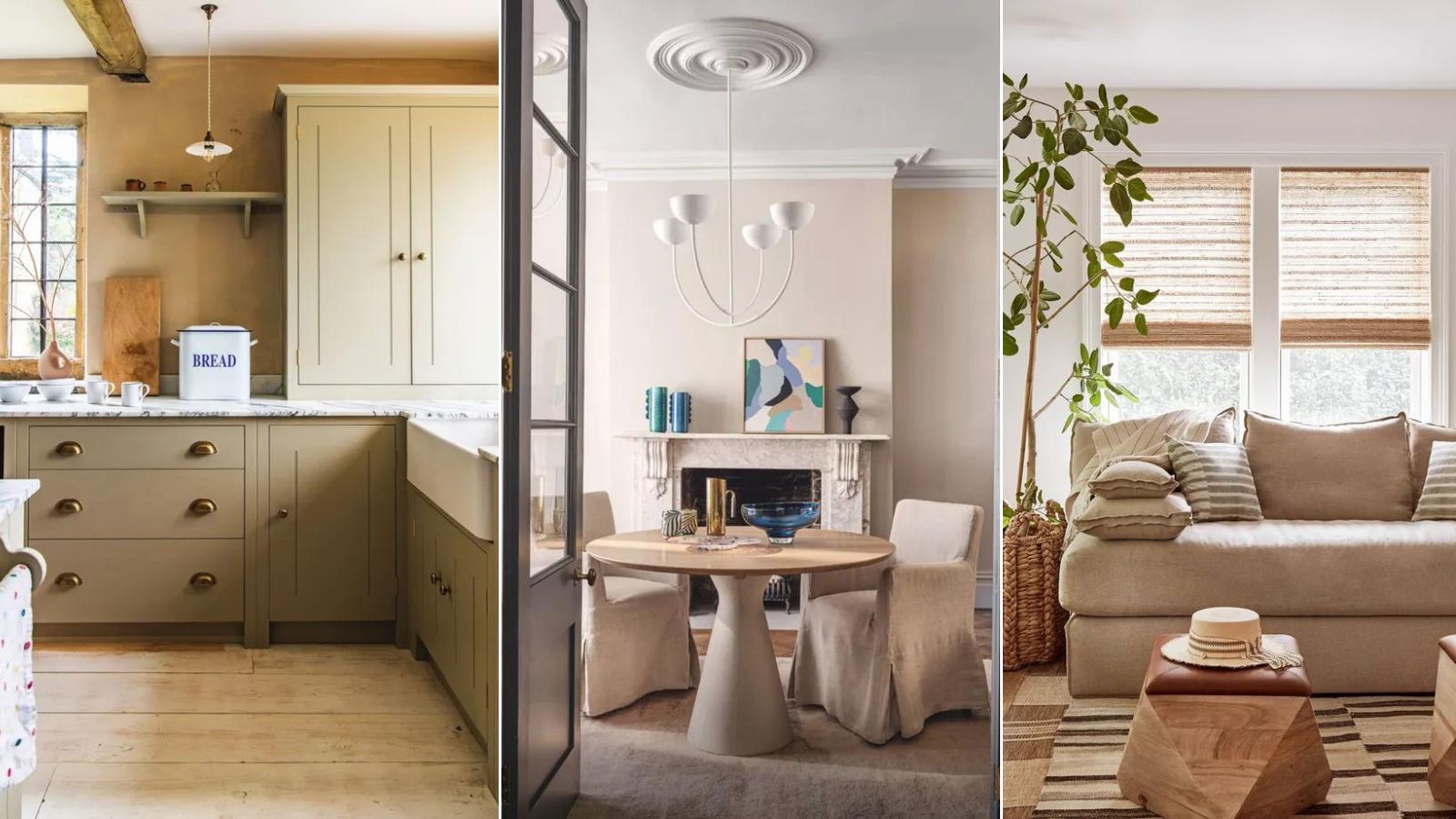
- What is the new gray in interior design
- Is gray out of style for 2024?
- What can I paint walls with instead of gray?
- How do you decorate with beige
- 1. How to use beige in a kitchen
- 2. How to use beige in a living room
- 3. How to use beige in a bedroom
- 4. How to use beige in a bathroom
- 4. How to use beige in an entryway
- 6. How to use beige in a laundry room
- 7. How to use beige in a dining room
- 8. How to use beige in a pantry
- 9. How to use beige in a powder room
- 10. How to use beige in a sunroom

Hebe Hatton
Gray has dominated in the world of interiors for decades. Color trends come and go but gray has remained a perennial favorite for as long as many interior designers can remember.
But in recent years there's been a slow shift in color trends. We want softer, more welcoming spaces that feel filled with character and warmth – something that cool gray can't always offer. So the ever-popular gray is being replaced by warmer neutrals, more specifically the once shunned as 'boring', beige.
'For years, and I do mean years, grey was the go-to,' explains design Mollie Ranize. 'Grey felt crisp and modern. But as all design ideas go, things change and we all crave new things every now and then. For the time being, and possibly for the next 10 years or so, beige is the new soothing base color. It creates the perfect amount of natural warmth in almost any space. Beige also pairs really nicely with natural materials like woods and stones, which thankfully are very 'in' right now.'
Here, designers, decorators, and color experts reveal why beige is replacing gray, and how to decorate with beige for a beautiful scheme every time.
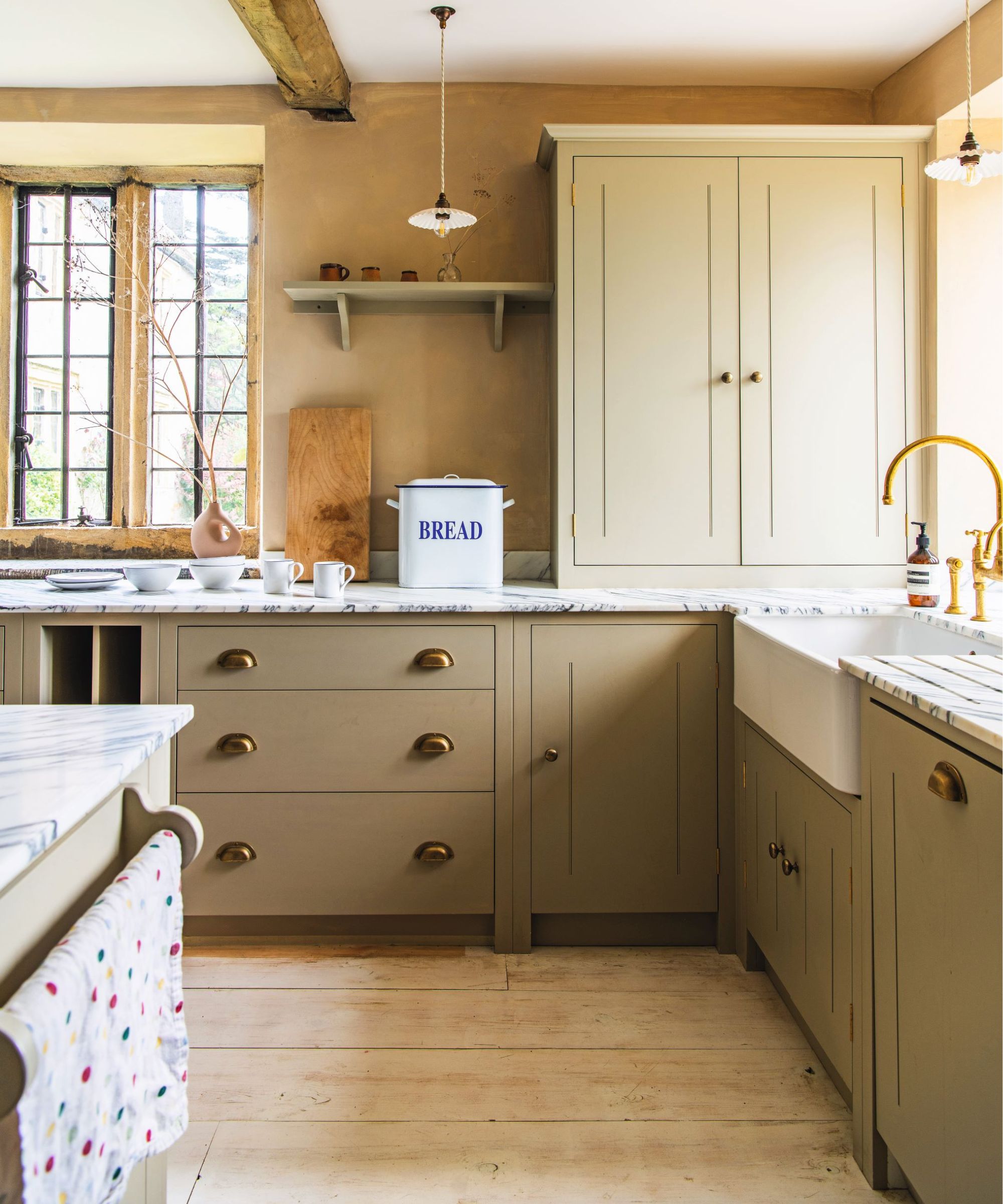
What is the new gray in interior design?
Beige room ideas are the new gray in interior design, and it isn't too difficult to see why. The beauty of a neutral scheme is that it provides a wonderful scaffold upon which to hang accents of color, adds Deborah Bass, founder of Base Interior. In fact, beige, and its darker variations, are also the colors replacing white.
‘This is especially true in a home office where a neutral wall or a textured plaster or wallpaper wall finish creates a background for books and art, both of which can take the decorative center stage.’
She recommends grounding subtler shades with deeper, richer natural timber to create a balance. ‘Neutrals offer an elegant, timeless response to the working from home dilemma, likewise versatile in the sense that different family members might be using the space at different times of day and for a variety of functions,’ she adds.
Is gray out of style for 2024?
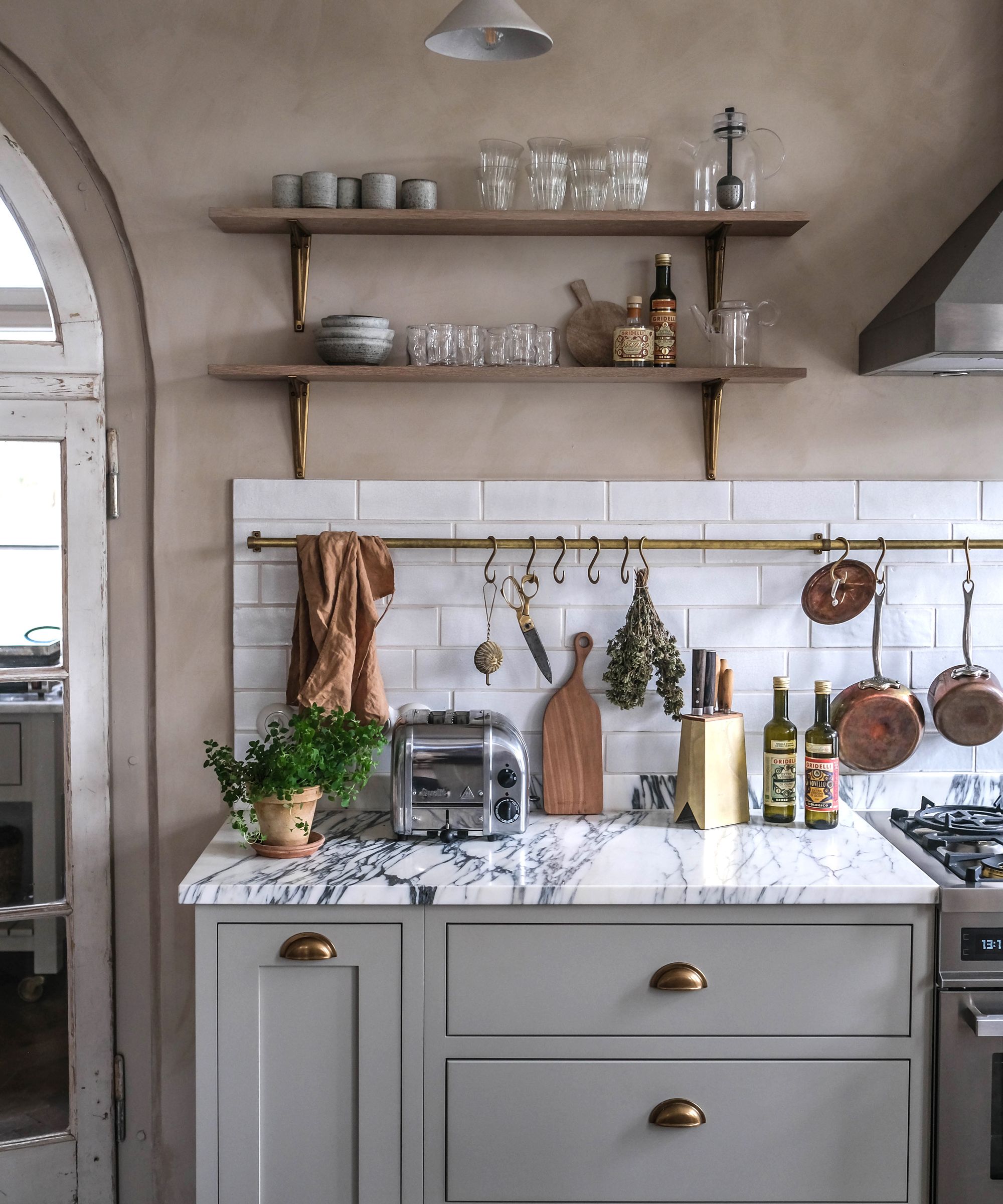
Like most things, color and home decor trends come and go, so while the cool-toned grays of the early noughties were hugely popular, we are now seeing a sudden and sharp shift away from cool tones in favor of warmer color schemes. Colors like beige, amber, ivory, rust, and sepia tones are taking over.
Gray is often associated with dullness and boredom. Being surrounded by too much gray can leave you feeling drained and depleted of energy, so it's no surprise we have grown tired of the endless velvet gray sofas, carpets, walls, and decor that have graced homes over the past decade.
'The decline in all over gray color schemes reflects our ongoing desire to make our homes, in which we’ve all come to spend more time, feel special and layered,' says Anthony Barzilay Freund, 1stDibs’ editorial director. 'Comforting colors, particularly those that evoke nature and warmth, are visually interesting and also feel emotionally reassuring.'
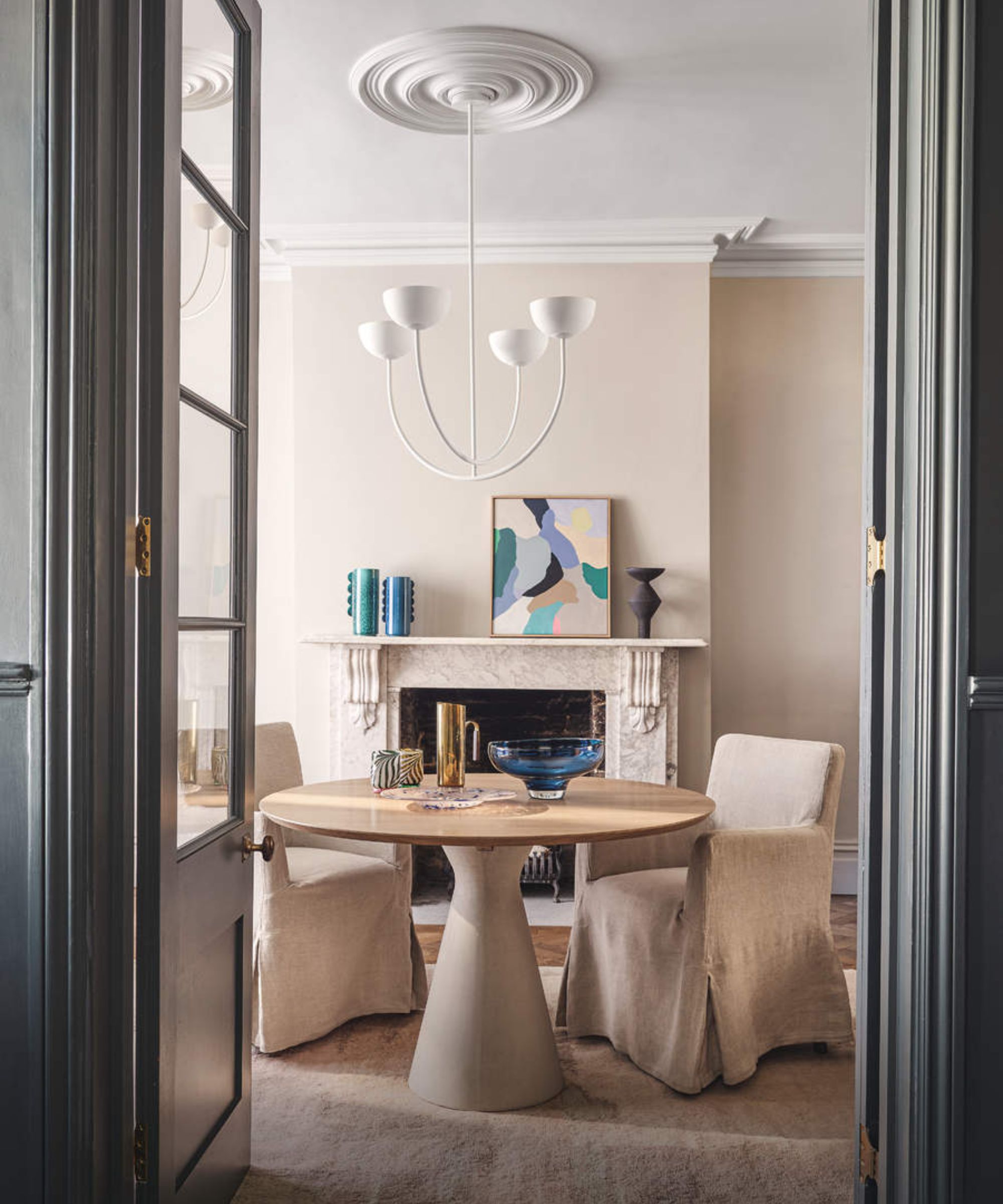
But if you still love gray, all is not lost. There are still certain shades of gray that look fresh and contemporary. Gray tones can make a lovely palette for the home as they exude a sense of calm, believes Charu Gandhi, founder and director of Elicyon.
‘Gray might be considered boring or cold, but there are ways to make it feel warm and a focal point. While in previous years cool grays alongside silver and high gloss tones were fashionable, we are using deeper, darker grays or even near-blacks in some of our homes. These richer tones envelop you as you enter the room and add coziness. To avoid the room feeling somber, it’s important to pair gray with pops of color and texture in accessories such as pillows or throws or artwork.’
When we asked designer Bethany Adams if gray was on the out as the most popular neutral, her response was, 'Definitely. Though I think gray still has a seat at the table, it's hard to deny that beige is a design darling. There will never not be a trending neutral and right now beige is it. As with all trends, I recommend you take it easy and start with small doses. Today's trend is tomorrow's dated.'
What can I paint walls with instead of gray?
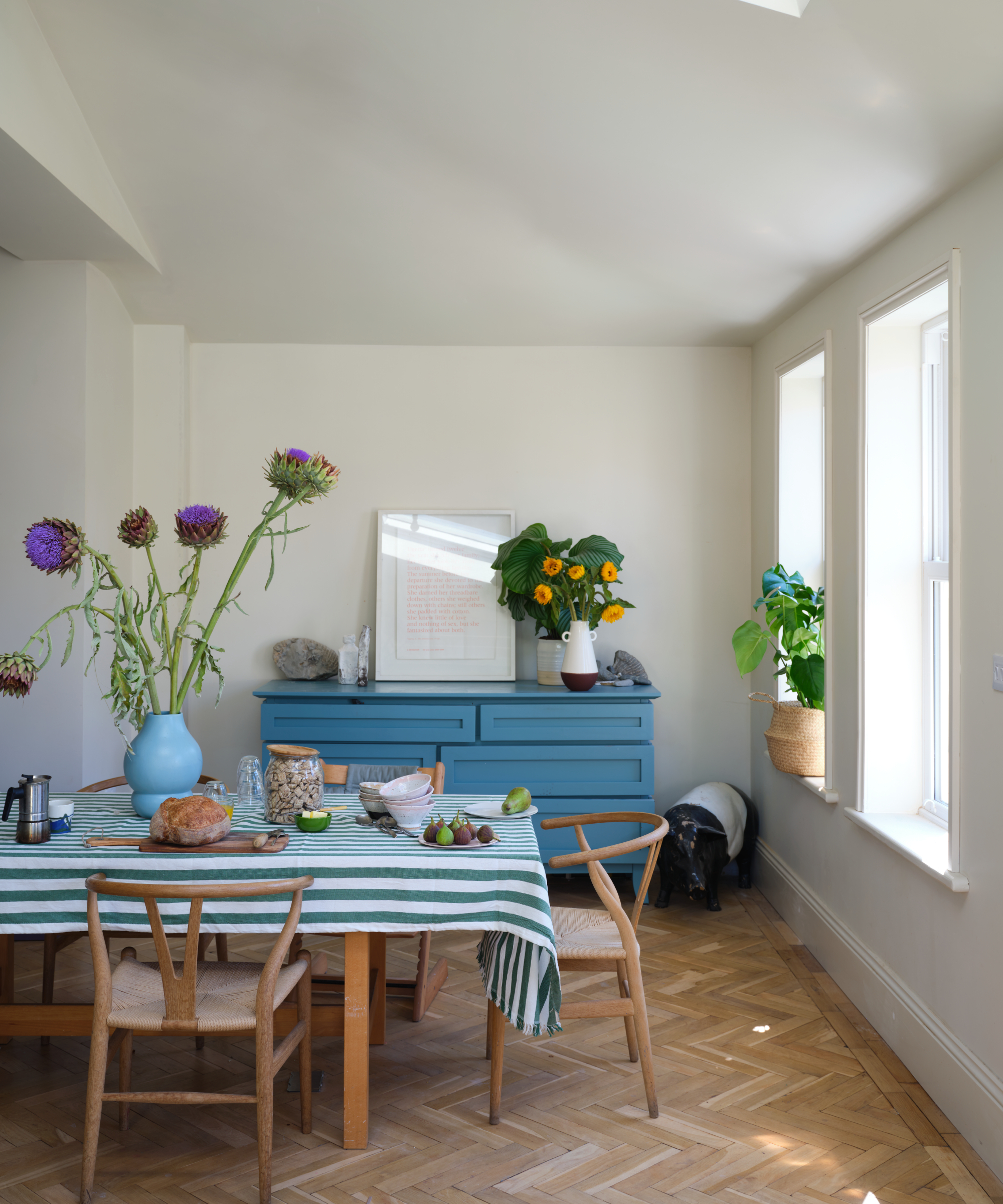
Using an off-white or natural palette is all about adding depth and contrast in different layers and textures, says Jane Landino, creative head of the studio at Taylor Howes.
‘To make a neutral palette feel designed and considered it’s important to mix and match patterns, albeit neutral ones, and occasional pops of color. Just because something is beige doesn’t mean it has to be plain: think about the application, too.
Beige is one of the most versatile shades in all of design – it instantly brightens while evoking a sense of calm and flawlessness. Add interest through colorful art, accent soft furnishings, and antique furniture and objects. It also makes it easier to change up the look of a room.
For a warmer, cozier aesthetic, consider a red-based neutral shade such as Wimborne White or Dimity by Farrow & Ball, recommends Louise Wicksteed, design director at Sims Hilditch.
How do you decorate with beige
A neutral color palette doesn't have to mean dull – let your room sing out with a tonal color palette. Here's how the experts get it right...
1. How to use beige in a kitchen
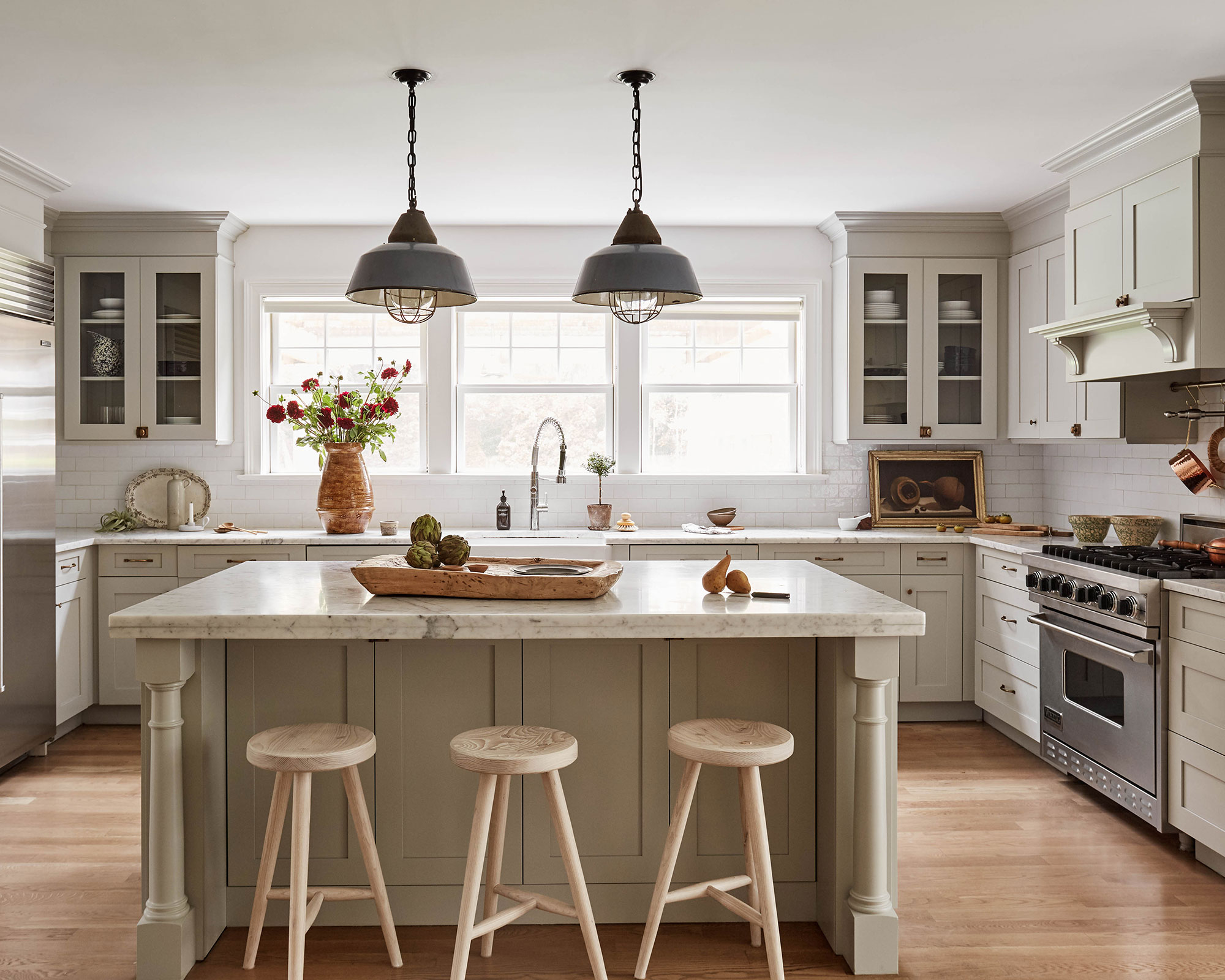
The beauty of a beige or cream kitchen is that it brings a certain timelessness and longevity to the design.
Go back to basics with beige and it will allow the rest of the fixtures and furniture to truly sing. Alongside all the clamor of color, pattern, and shape in current interior design, there’s a quieter story of considered, understated forms and textures at their finest.
If you're wondering how to make a small kitchen look bigger, beige is a smart color choice. Unlike white, it will feel more welcoming and home buyers love cream kitchens, too, which is always a bonus.
2. How to use beige in a living room
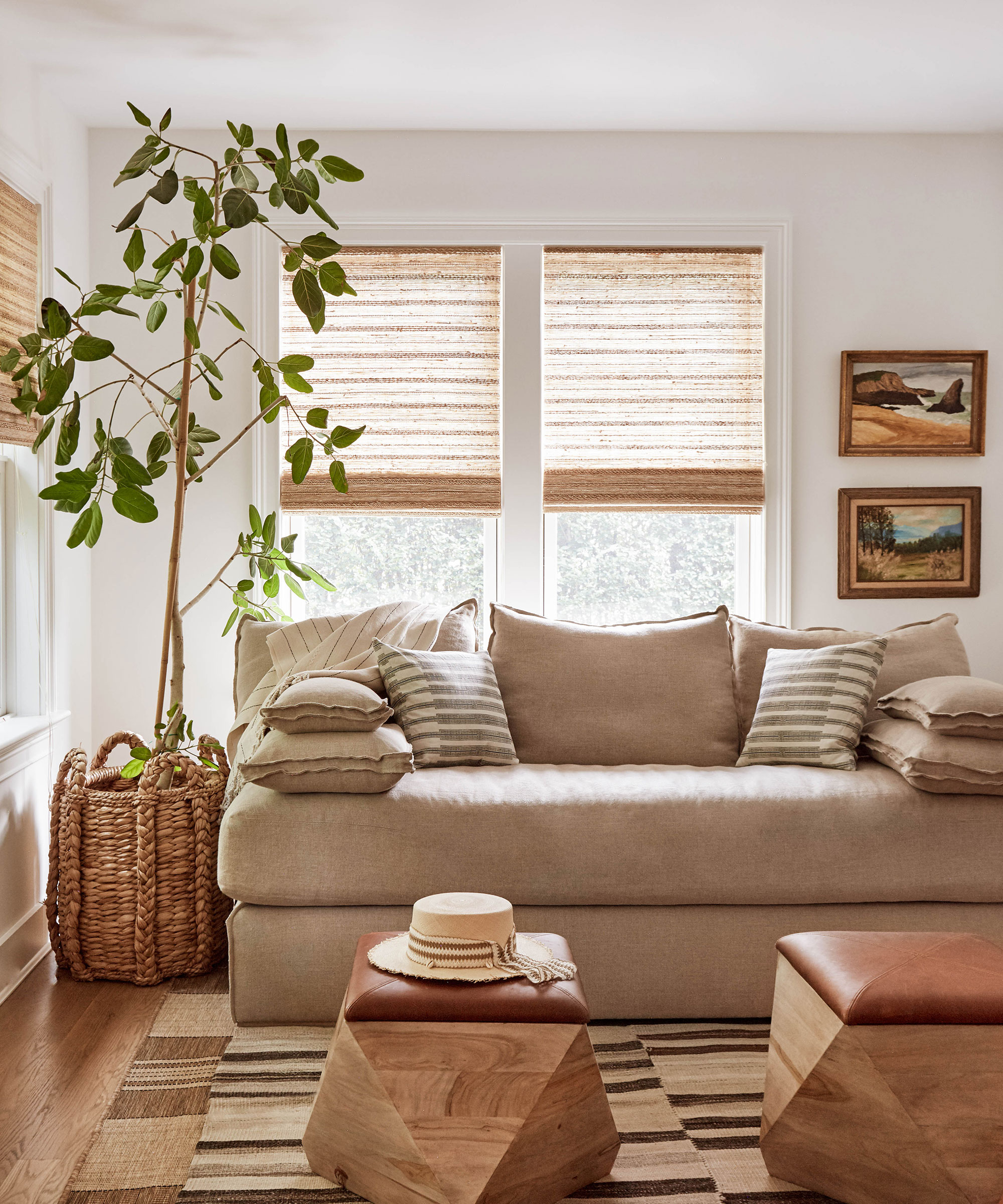
Beige living rooms offer infinite possibilities for making this family space feel airy and relaxing, refined and timeless. However, beige living room paint ideas alone are not a fail-safe option – and it is all too easy to fall into the trap of using bland, dull colors that are nothing like the subtle, complex schemes featured here.
'Natural textures, whether they are stone or wood or linen, can help to anchor a neutral color scheme,' says interior designer Tamsin Johnson. 'It means that the overall look doesn’t feel too contrived or uptight or overly designed. They bring a laid-back quality that always works well.'
3. How to use beige in a bedroom
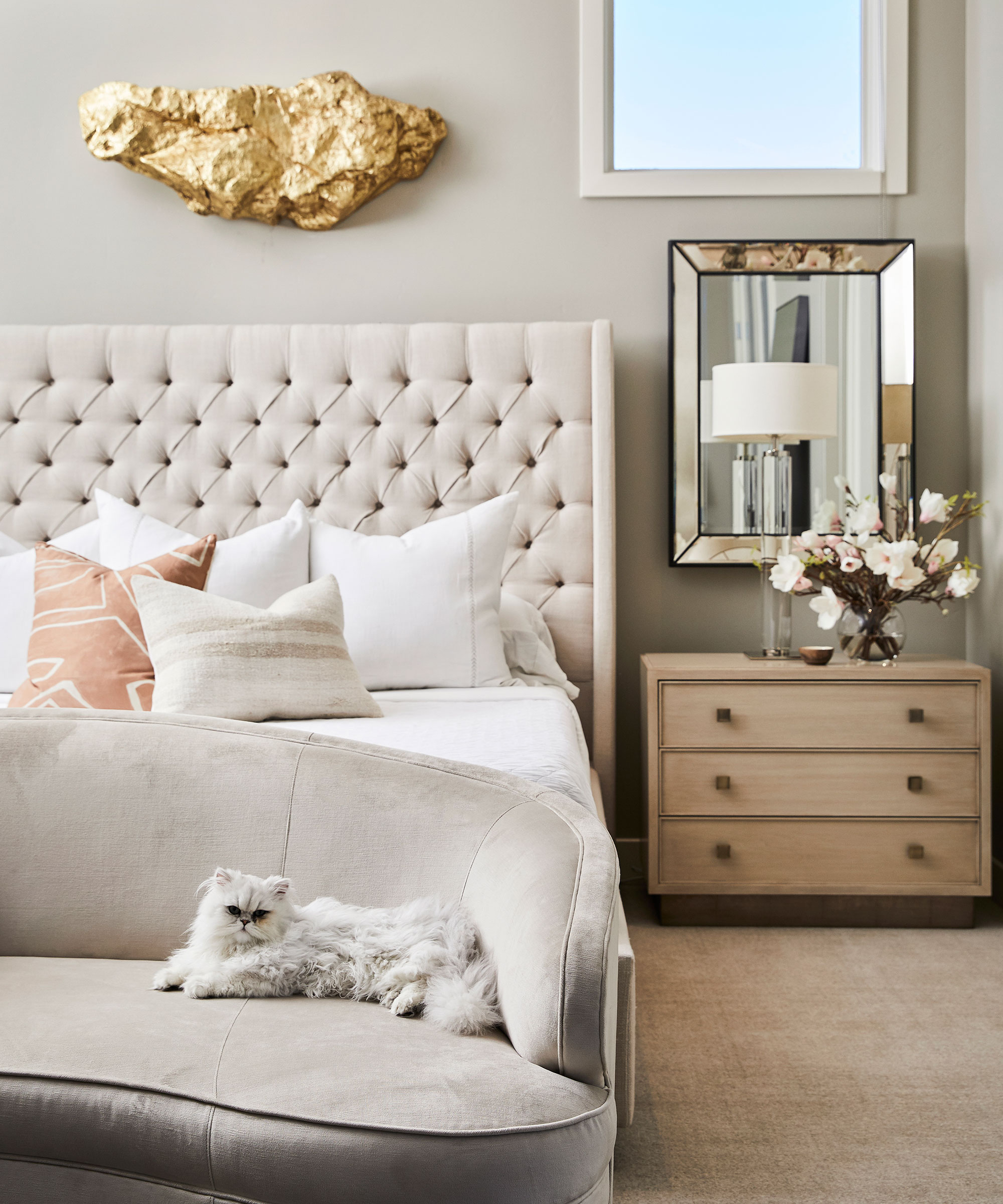
Subtle nuances of color are why James Thurstan Waterworth, founder of Thurstan, favors neutral colors in his schemes because they create a soft springboard from which antiques, art and other embellishments are able to sing.
‘You can then build out from here with tactile surfaces, patterned textiles, eclectic furnishings and more modern flourishes to create layers of interest, while still allowing all the individual elements of the interior to breathe.'
Designed by Jessica Bennett of Alice Lane Interiors, this beige bedroom is anything but boring thanks to the use of texture and subtle hints of color.
‘I often find, especially with a neutral background, that adding in pops of color can add so much personality of your own to a space by choosing colors you love and tying those in with the cardinal directions of each room to make sure they complement the natural light (or lack thereof) in each room,' she adds.’
4. How to use beige in a bathroom
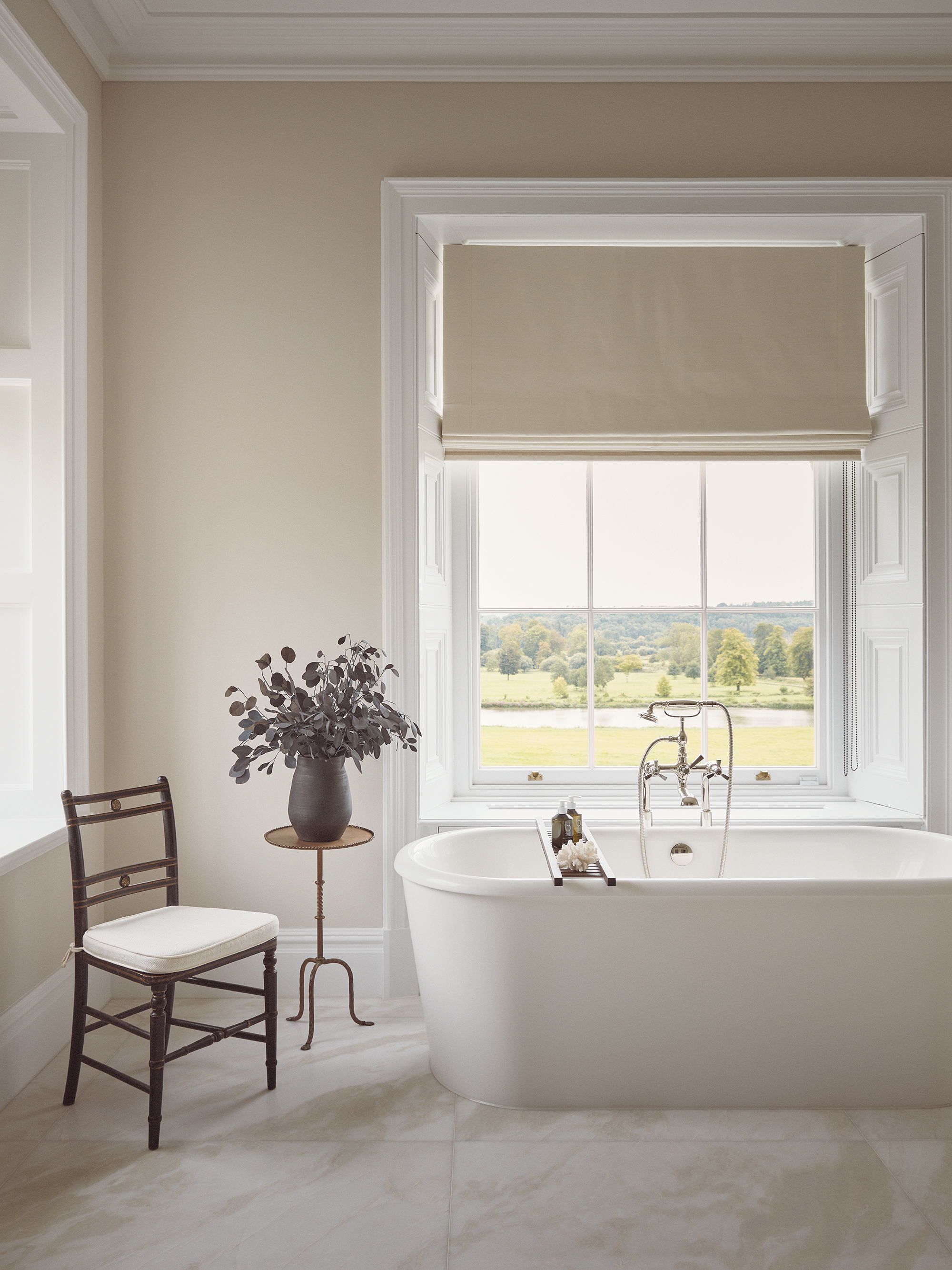
When decorating a neutral bathroom, yet wanting to maintain a soothing environment, remember that accent colors can be introduced using elegant fragrances or bath oil bottles, says Sarah Ward, co-founder of Ward & Co Interiors.
‘Colored glass accessories add vibrance, particularly when lit together with soap, towels and art.’ Floral fixtures, and reclaimed furniture too, can be used creatively to weave in another color or tonal contrast.’
4. How to use beige in an entryway
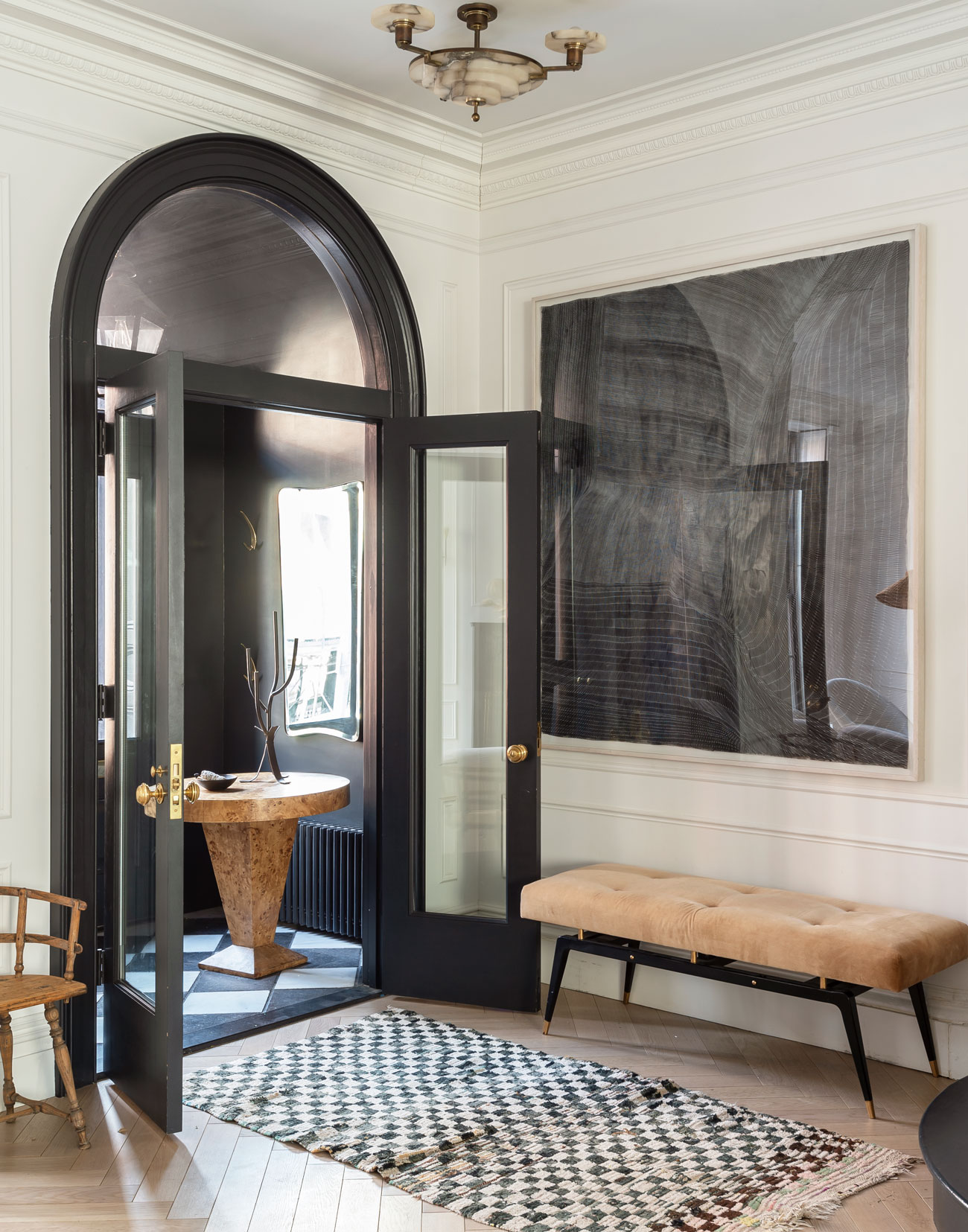
We all adore the calmness that you create when you have a neutral palette in a room. But this choice definitely doesn’t have to mean boring: you can create an interesting and exciting space by layering different tones, such as off-whites and beige, then introducing a range of caramels and even accents of black.
Here, designer Athena Calderone, founder of eyeswoon, has masterfully mixed warm neutral with accents of black and hints of gray. 'If I’ve got a calm beige color scheme, then I focus on texture to bring different layers of interest,' she says.
You have to think about how to introduce variations and things that feel different to the touch without just focusing on the beige color scheme, and often that creates a more interesting scheme. Varying glossy, shiny surfaces with matt ones adds an extra layer of texture and tactility.
6. How to use beige in a laundry room
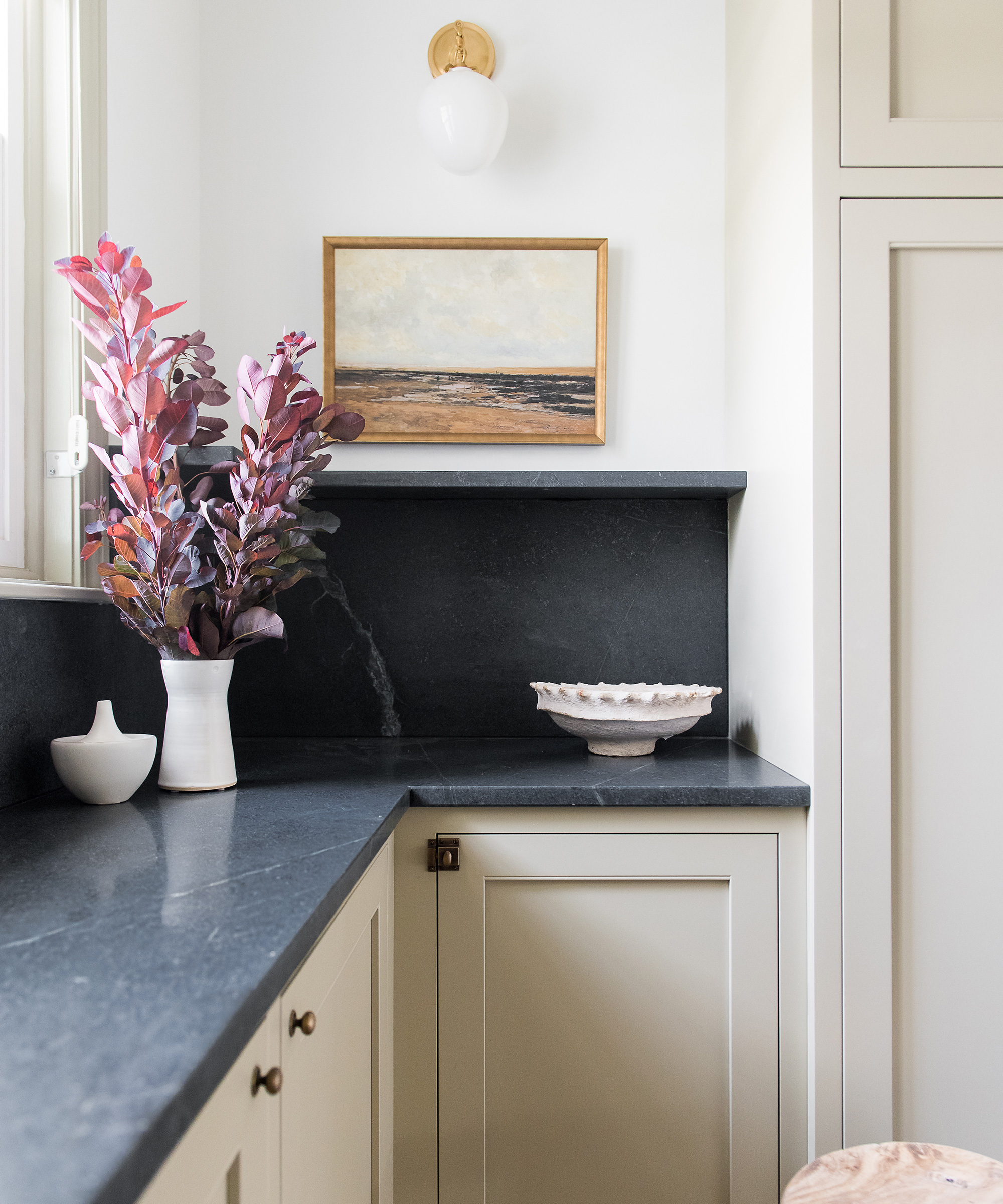
A warmer alternative to the once-popular gray, beige is easy to live with and can make a beautiful foundation for both contemporary and traditional schemes.
'More than ever, we’ve seen that there is a greater need to surround ourselves with comforting, soothing colors that are not only easy to live with but provide warmth and serenity within our homes. This has been reflected in the increasing popularity of warmer neutrals, in a clear shift away from the cooler, blue-toned grays. Instead, consumers have been opting for earthier tones that have an inherent warmth,' explains Ruth Mottershead, creative director of Little Greene.
'Beige and brown both work well in the laundry room, they are inviting colors that remind us of the outdoors and nature and so encourage us to relax, which is particularly important in what could be perceived as a stressful space' says Justyna Korczynska, senior designer at Crown Paints.
7. How to use beige in a dining room
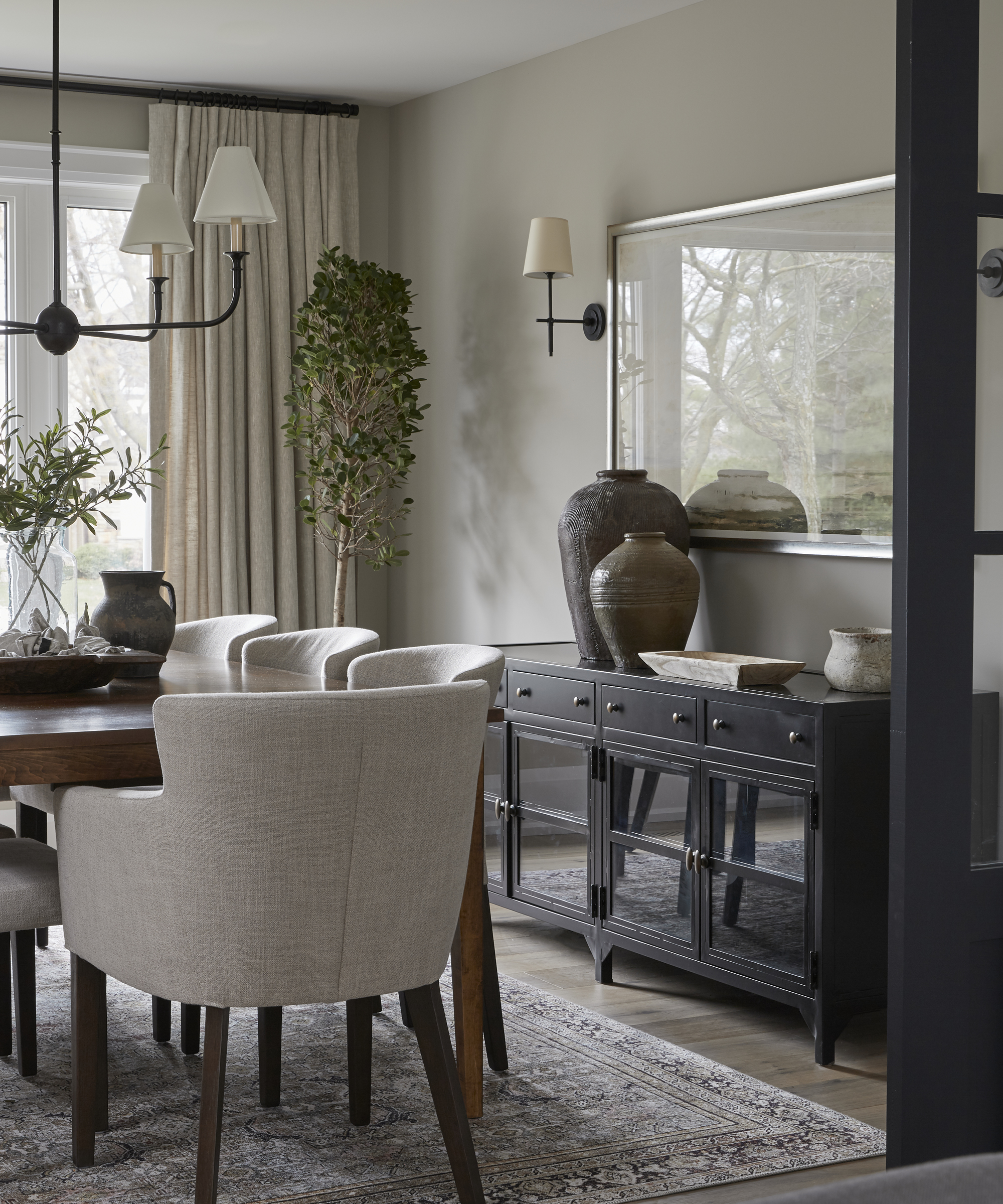
'There is something intrinsically beautiful about curating a calm formal dining room,' says designer Tiffany Leigh. Beige is wonderful for this, but that doesn't mean you need to do away with gray entirely. This entire scheme is built upon a tonal palette of beige, dark brown, and mid-gray.'
Having said that, you shouldn’t be afraid of adding a single bold statement piece, even in a room that’s neutral. I think a strong black metal or ebonized wood statement design can work brilliantly as the centerpiece in an otherwise pared-back room. It makes all the other elements come together around it.
8. How to use beige in a pantry
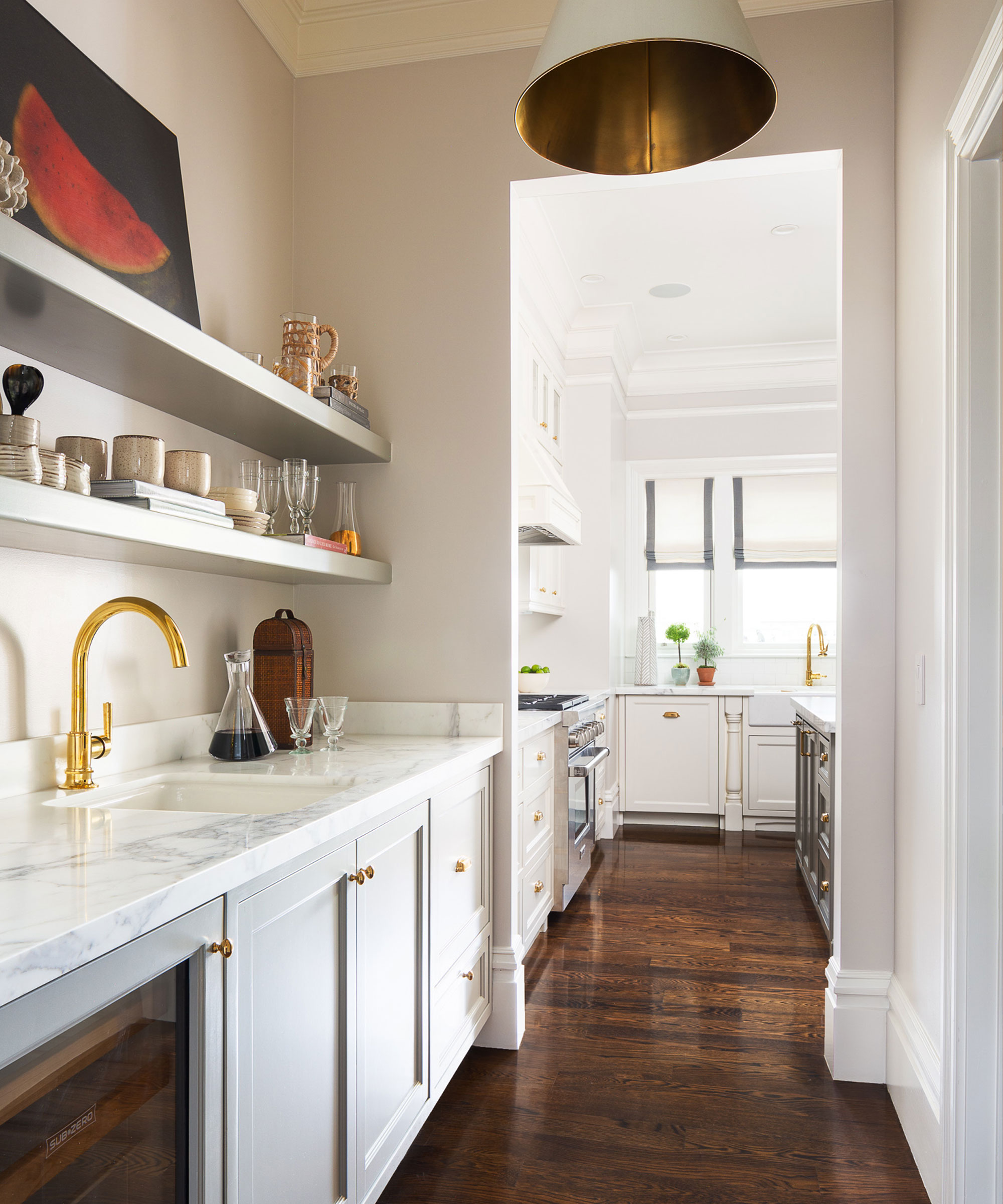
This year the humble pantry is coming into the spotlight with a considered color scheme that sings not shouts.
When selecting more neutral paint shades, it’s essential to get the mineral balance right, believes Tom Cox, co-founder of HÁM interiors. ‘We like to look at the pigment and depth of color in a paint – too often a shade will have too much gray or brown as undertones, which can then be challenging when adding decorative accents and finishing touches.'
Here, designer Margaret Ash decorated with a plain beige backdrop to bring interesting materials into sharp relief. The striking grain of natural wood on the floor really stands proud against the warm beige and off-white hues used elsewhere.
9. How to use beige in a powder room
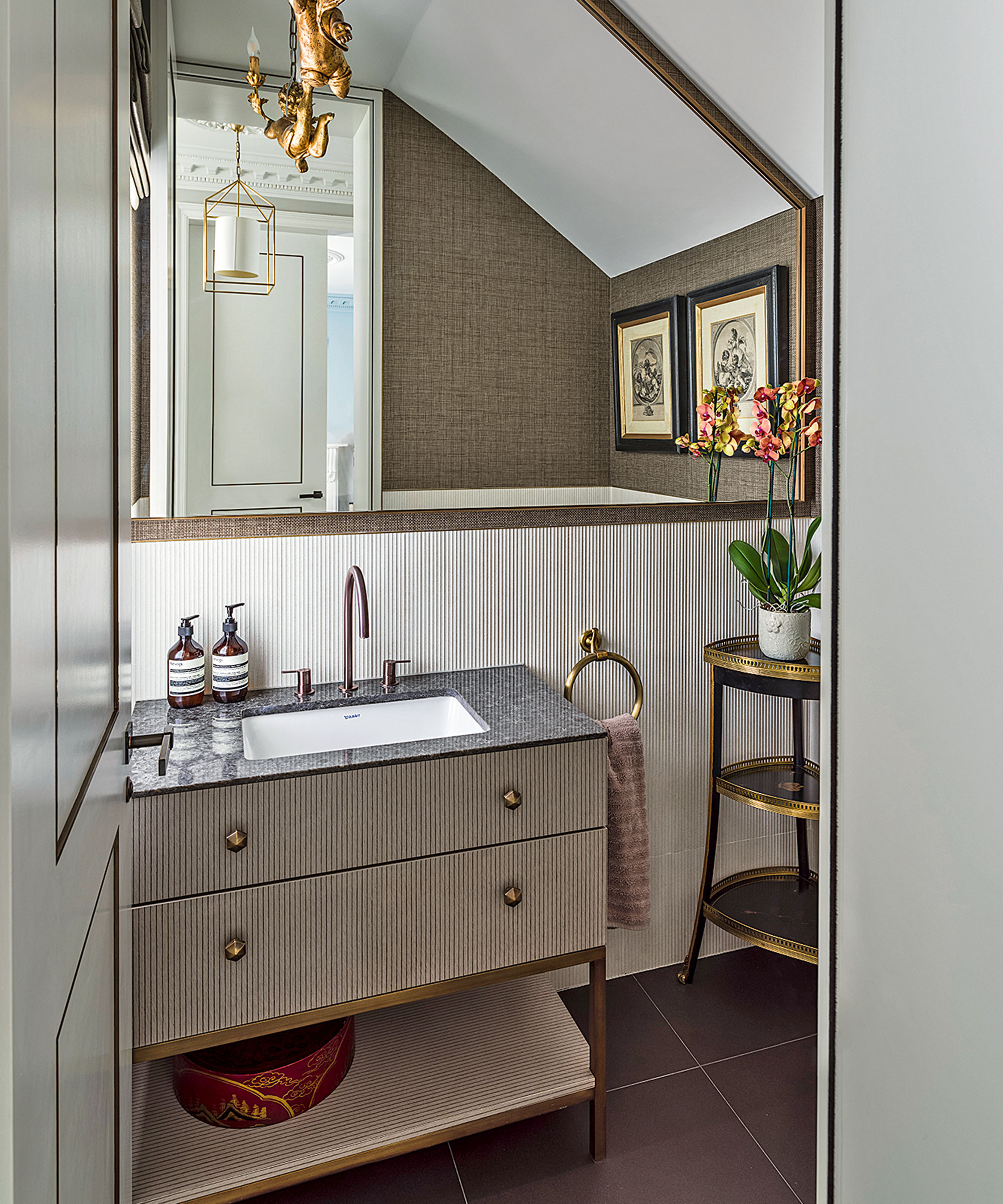
Paneling is a smart way to add beige to a modest powder room, especially when paired with textured wallpaper in the same color palette for your powder room wall decor ideas.
'As an earthy pigment, beige is brilliant for bringing the nurturing qualities of nature into the home for a soothing scheme,' adds Roselind Wilson, creative director, of Roselind Wilson Design.
Alternatively, beige or the beige-gray color trend can provide a perfect quiet backdrop for decorating with standout fixtures, colorful artwork, and cherished possessions.
10. How to use beige in a sunroom
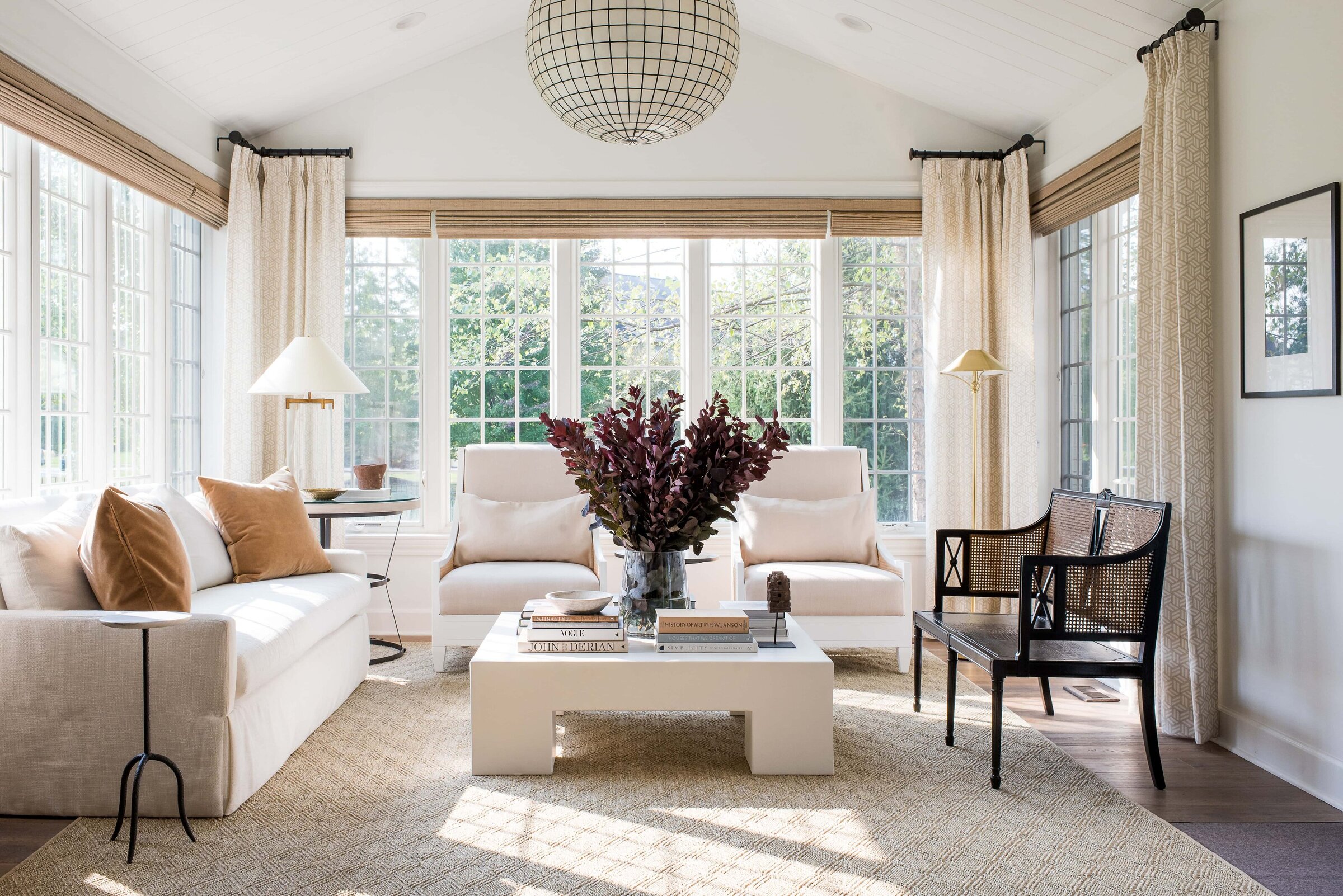
While they may seem like a safe choice, decorating with neutrals can be tricky to get right, but with some interior design know-how, neutral shades can be used to create beautiful schemes for any room. As an earthy pigment, beige is brilliant for bringing the nurturing qualities of nature into the home for a soothing scheme.
Above, Indianapolis-based designer Whittney Parkinson turned her client's dated sunroom into a showpiece in the home thanks to a statement light fixture and a peaceful, pale beige palette.
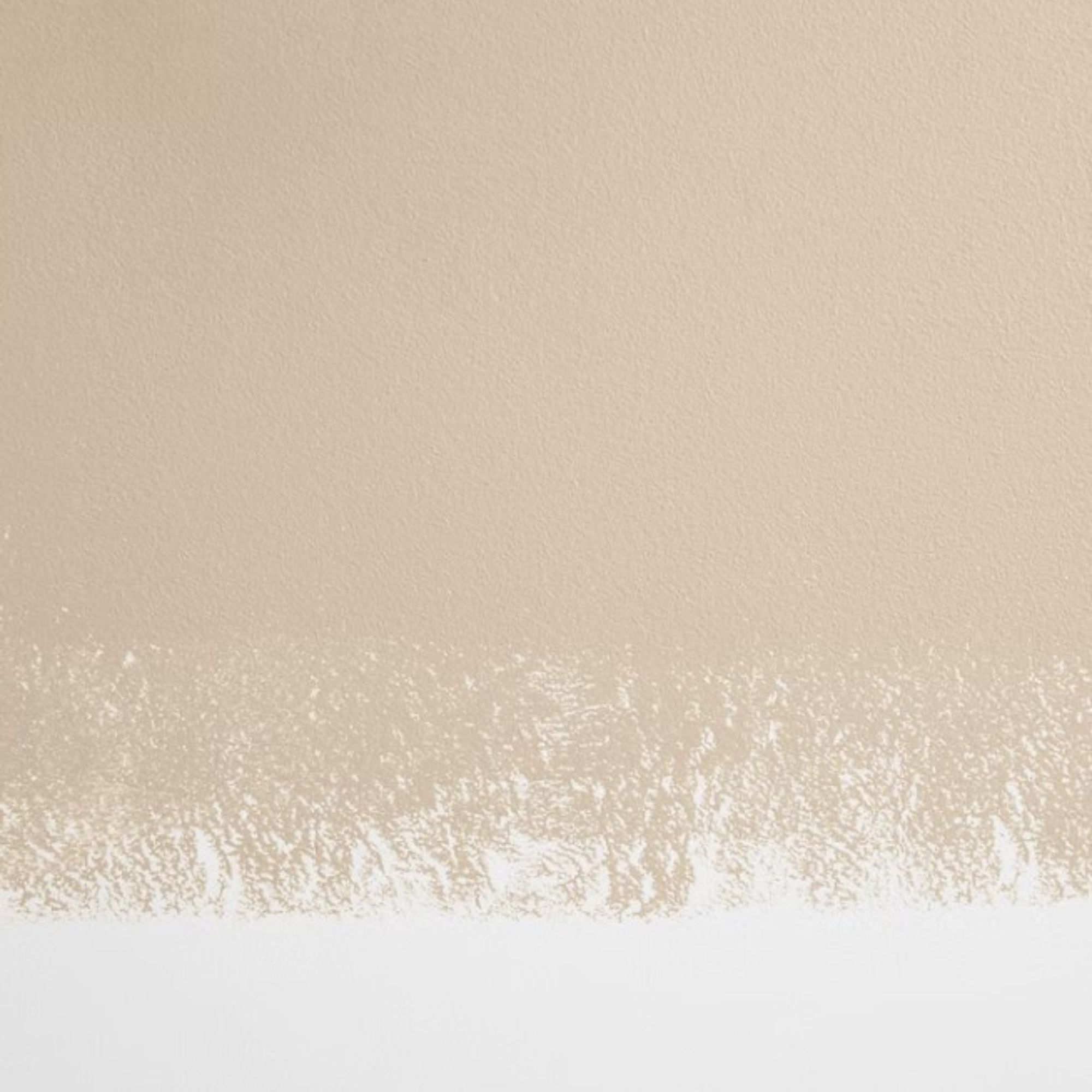
This tranquil, mid-tone classic tan beige is said to be 'the next best thing to being in Japan'.
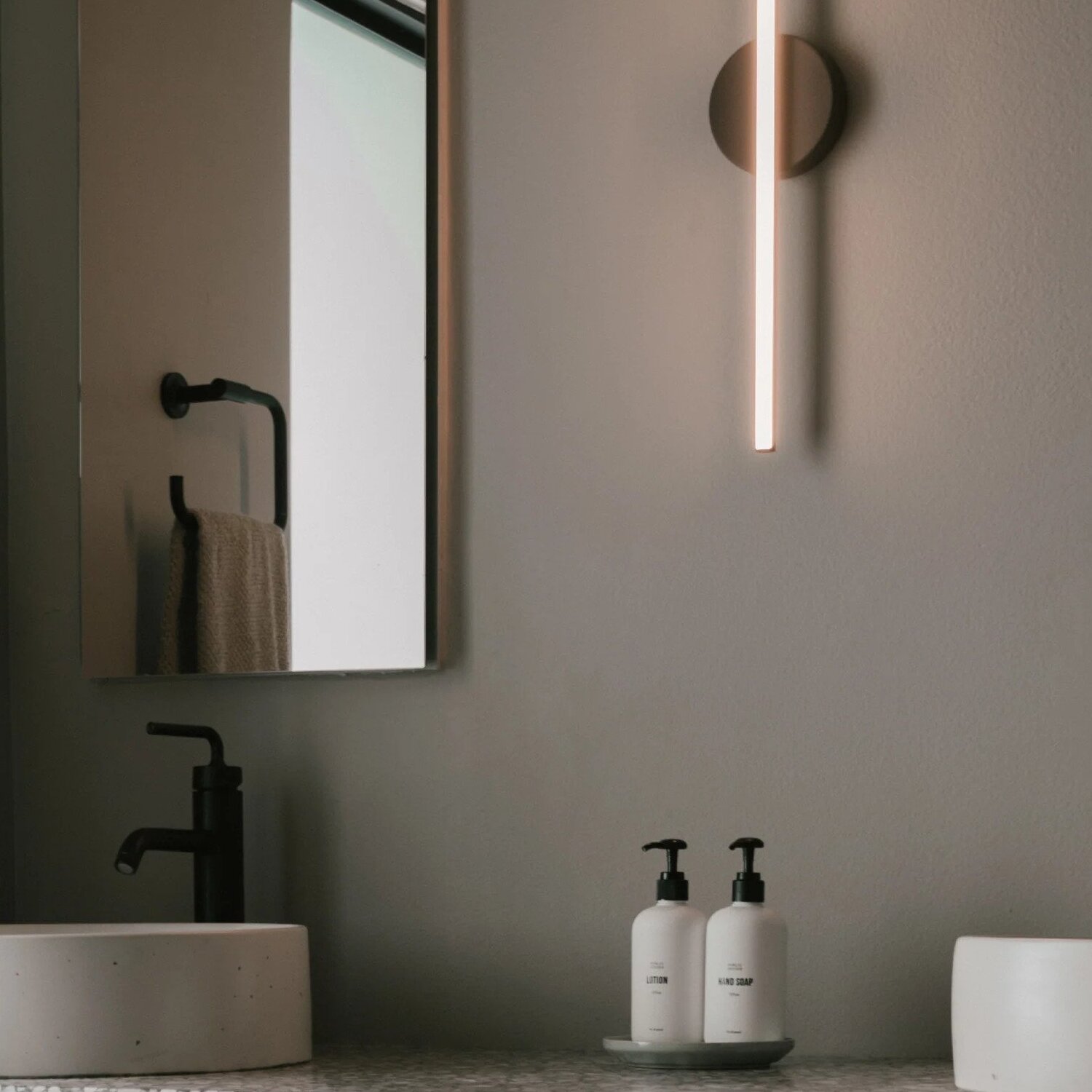
The color and tone of the moment, this warm, gray-beige that can skew taupe depending the light.
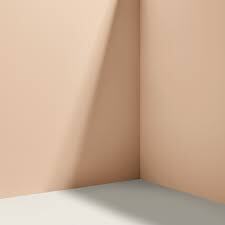
A warm, earthy beige inspired by a real Brooklyn Cowboy. This is a wonderful choice for the bedroom.
'In my opinion, both beige and gray are timeless neutrals that will probably always have a place in the home design trendscape,' says designer Kathy Kuo. 'Beige lends itself to a warmer color scheme, whereas gray tends to feel cooler; gray can also feel very different if it's a light dove gray vs. a darker charcoal gray. It's really all about the color story you want to tell and which neutrals you feel support that the best.'
So as with all things interior design, whether a color is 'in' or 'out' can be so subjective. As Kathy says there's a place for both gray and beige depending on the overall feel you want to create in your rooms.
Sign up to the Homes & Gardens newsletter
Design expertise in your inbox – from inspiring decorating ideas and beautiful celebrity homes to practical gardening advice and shopping round-ups.

Jennifer is the Digital Editor at Homes & Gardens. Having worked in the interiors industry for several years in both the US and UK, spanning many publications, she now hones her digital prowess on the 'best interiors website' in the world. Multi-skilled, Jennifer has worked in PR and marketing and occasionally dabbles in the social media, commercial, and the e-commerce space. Over the years, she has written about every area of the home, from compiling houses designed by some of the best interior designers in the world to sourcing celebrity homes, reviewing appliances, and even writing a few news stories or two.
- Hebe HattonHead of Interiors
-
 Lamb leg stuffed with horta and feta
Lamb leg stuffed with horta and fetaThis stuffed leg of lamb with greens and feta is a fresh take on a classic roast, perfect for Easter lunch with friends or family
By Alice Hart
-
 Tea-smoked salmon with horseradish dressing
Tea-smoked salmon with horseradish dressingWe love this salmon recipe, an impressive centerpiece to any Easter or spring menu. Served with horseradish dressing, it's got a kick, too
By Alice Hart